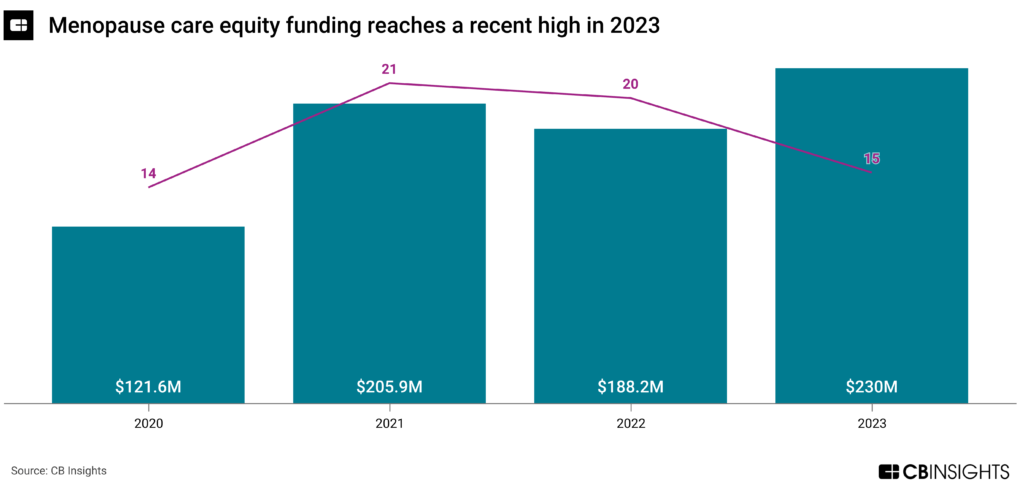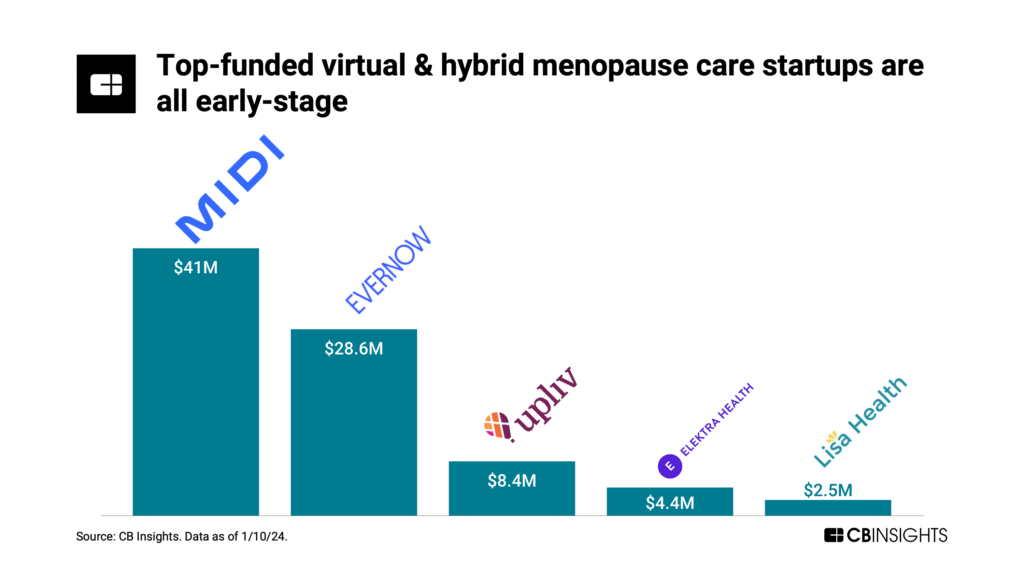From mental health support features to ovarian health, we look at recent activity in key menopause care markets to identify trends in the space.
Menopause care was a bright spot for venture in 2023, an otherwise tough year for women’s health startups.
Companies helping women better deal with menopause symptoms raised $230M in equity funding in 2023, up 22% from 2022. This accounted for over a third of all women’s health funding — which plummeted from $1.4B to $648M over the same period.
Investors see clear growth potential for menopause care — driven by unmet demand for access to medical services specifically for menopause symptoms and by employers becoming more willing to pay for menopause care services as part of employee benefits packages.
However, existing competitors as well as recent innovation in the ovarian health space could put these startup investments at risk in the coming years. Below, we dive into some of the major trends shaping the future of menopause care.
Key takeaways
- Early-stage virtual & hybrid clinics offer specialized menopause care but face stiff competition from incumbents. Emerging menopause-focused telehealth solutions may struggle to capture significant market share if established women’s health platforms add menopause care to their suite of services.
- Menopause support apps are addressing mental health challenges. A growing number of digital menopause solutions are focusing on providing emotional support at scale, including through the use of specialized AI companions.
- Biotech startups are working on ways to avoid menopause altogether. Preclinical-stage startups focusing on ovarian health are aiming to delay (or even circumvent) the onset of menopause and related symptoms, but it will be a while before these approaches hit the market.
Early-stage virtual & hybrid clinics offer specialized menopause care but face stiff competition
Recent years have seen the emergence of virtual & hybrid menopause care clinics that are exclusively focused on helping women better manage their menopause symptoms through telehealth services.
Offerings in this space include tracking tools for symptoms such as hot flashes, access to clinicians who are specifically trained to deal with menopause symptoms, and hormone replacement therapy (HRT) prescriptions.
One company that stood out in 2023 is Midi, which raised a $27M Series A round led by Google Ventures in September 2023, making it the most well-funded startup in this market. One month later, the company announced that its services would become available to employers in all 50 US states at the beginning of 2024.
Find this chart in the virtual & hybrid menopause care market data tab.
Lisa Health‘s menopause platform Midday was developed in partnership with Mayo Clinic and allows users to schedule virtual care visits with Mayo Clinic’s menopause specialists. The platform also leverages AI to offer personalized insights into menopausal health. For example, users can connect third-party wearables like Fitbits to detect and measure hot flashes.
Want to see more research? Join a demo of the CB Insights platform.
If you’re already a customer, log in here.



